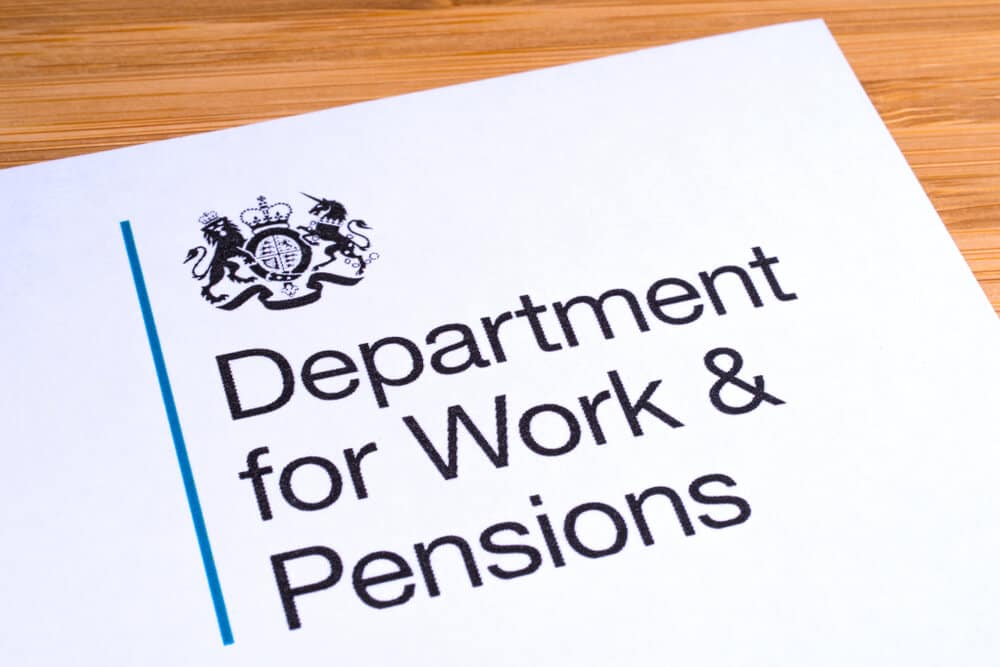If you discover you’ve received benefit overpayments, the thought of paying them back can be stressful, especially if money is already tight and you were overpaid through no fault of your own. That said, it’s always best to take action on benefit overpayments.
In this guide we’ll explain what benefit overpayments are and how they happen, explore some of the consequences if you fail to repay your benefit overpayments, and give you an idea of what you should do if you discover you’ve been overpaid benefits.
What is a benefit overpayment?
DWP benefit overpayments happen when someone is paid too much in benefits, which are payments made by the UK Government to people on low income in order to help them keep up with basic living costs.
There are various types of benefits which are subject to overpayments, like employment and support allowance, income support allowance, or universal credit. Benefits overpayments can occur for a number of reasons, such as changes in circumstances or errors in the system.
How does an overpayment happen?
There are a number of reasons why benefits overpayments can occur. Below are some of the most common.
Change in circumstances
In some cases, you may be overpaid benefits due to a change in your financial or personal circumstances.
Your level of benefits is based on your financial situation at the time you apply.
If you get a job, move house, or come into a sum of money, you may find that your existing benefits need to be adjusted. Until that happens, you are a risk of overpayment.
DWP system failure
In other cases, benefits overpayments come down to a mistake on the part of the Department for Work and Pensions (DWP).
The DWP is a large Government department that deals with tens of thousands of cases each week.
If, for example, an individual is incorrectly placed in the wrong benefits category, they may receive more money than they are entitled to.
Benefit fraud
While it’s not common, benefits overpayments can also occur as a result of fraud.
If someone deliberately provides inaccurate information in order to receive a higher level of benefits, they may eventually be caught out by the DWP and required to repay the money.
Regardless of how the error occurs, if you have been overpaid benefits, you should contact the DWP as soon as possible to discuss your options.
What are the most common types of benefit overpayment?
Universal credit overpayments
Universal credit is the most common type of benefit available in the UK as it combines various other benefits into a single payment.
That’s why universal credit overpayments are also the most common kind of benefit overpayment.
Housing benefit overpayments
Housing benefit is a benefit that can help people pay their rent or housing costs if they are unemployed on low income, or already receiving qualifying benefits. While housing benefit overpayments were common, the benefit has since been replaced by universal credit.
Tax credits overpayment
There are two types of tax credits available in the UK – working tax credit and child tax credit, each of which are designed to help people on low income top up their earnings.
As with housing benefit, tax credits have since been replaced by universal credit therefore tax credit overpayments are unlikely.
Will the benefits office inform me of any benefits overpayment?
If you have been overpaid benefits by the DWP, you will need to repay the debt.
The DWP will usually contact you to arrange repayment, but if they do not, you can contact them to set up a repayment plan.
You can also ask for the debt to be waived if it would cause undue financial hardship.
There are several ways to repay a DWP benefit overpayment.
Direct earnings attachment
The DWP can deduct money from your wages or benefits to repay the debt by issuing a Direct Earnings Attachment (DEA).
Deductions from future benefits
The DWP can deduct money from your future benefits payments to repay the debt.
Bank transfer
You can arrange for money to be transferred from your bank account to the DWP to repay the debt.
Post-dated cheques
You can send the DWP post-dated cheques for the amount of the debt, plus any interest that has accrued.
What should I do if I receive a benefits overpayment?
If you are overpaid benefits, you will be required to repay the money to the Department for Work and Pensions (DWP).
Depending on your situation, you may be able to make repayments through your benefit payments, or you may need to make a separate arrangement.
If you are having difficulty repaying an overpayment, you should contact the DWP as soon as possible to discuss your options.
Benefit overpayments can be a financial burden, so it’s important to be aware of the situation and take action if necessary.
What if I don’t want to repay my benefit overpayments?
If you are having difficulty repaying a DWP benefit overpayment, you should contact the DWP to discuss your options.
You may be able to arrange a repayment plan that is affordable for you, or they may waive the debt entirely.
It’s DWP policy to recover overpayments without causing undue financial hardship – if recovering overpayments would put you in a precarious financial position, it’s possible the DWP will agree to call off the overpayment recovery process.
What are the consequences of refusing to repay benefit overpayments?
If you do not repay a DWP benefit overpayment, the debt will be passed to a debt collection agency.
The debt collection agency will then contact you in order to arrange repayment of the money.
If the debt is not repaid, legal action could be taken against you and your credit rating may also be negatively impacted.
Civil penalty
In some cases, a civil penalty may be issued for refusing to repay a DWP benefit overpayment.
This is usually only used in cases of deliberate benefit fraud or willful neglect, and it is up to the discretion of the local authority to decide whether or not to issue one.
Penalties typically range from £50-£200 depending on the circumstances.
If you think you may be liable for a civil penalty, it is best to contact your local authority or the DWP debt management team as soon as possible in order to avoid any further action.
Can I get a DWP overpayment write off?
If you have been overpaid benefits by the Department for Work and Pensions (DWP), you may be wondering if you can get the debt wiped clean.
Unfortunately, the DWP has six years to recover any overpaid benefits, after which the debt is considered ‘statute-barred’.
This means that the DWP can no longer take legal action to recover the debt.
However, this does not mean that the debt disappears completely – it will still show up on your credit report, and the DWP may try to recover the debt through other methods, such as deducting money from your future benefit payments.
Individual Voluntary Arrangement (IVA)
If you are struggling to repay a benefit overpayment, you may be able to set up an Trust Deed if you live in Scotland, or an Individual Voluntary Arrangement (IVA) should you live in England, Wales or Norther Ireland.
This is a repayment plan that is approved by your creditors – including the DWP – and it can allow you to repay a portion of your debt over a period of six years without incurring additional fees. Any debt not covered by your monthly contribution will be written off by your creditors.
Where can I get reliable debt management support?
It’s never fun to discover you’ve been overpaid benefits by the Government, but the situation can deteriorate quickly if your financial situation means you can’t afford to repay what you owe.
At Carrington Dean we specialise in helping people get rid of unaffordable debt. Our team can help you explore your options and choose a solution that could allow you to write off the money you owe in DWP overpayments.










